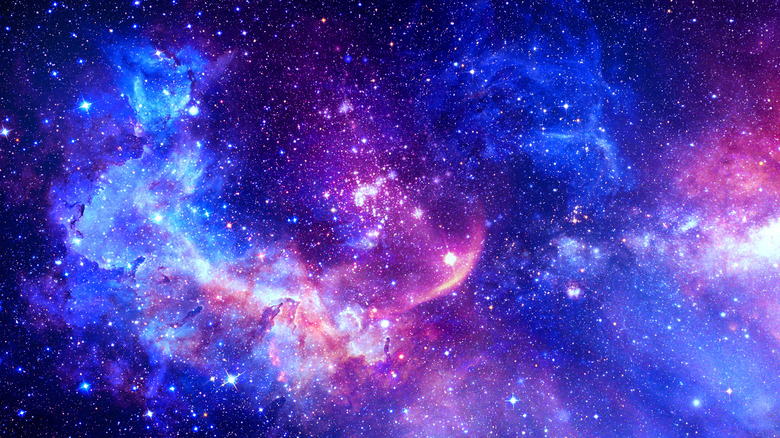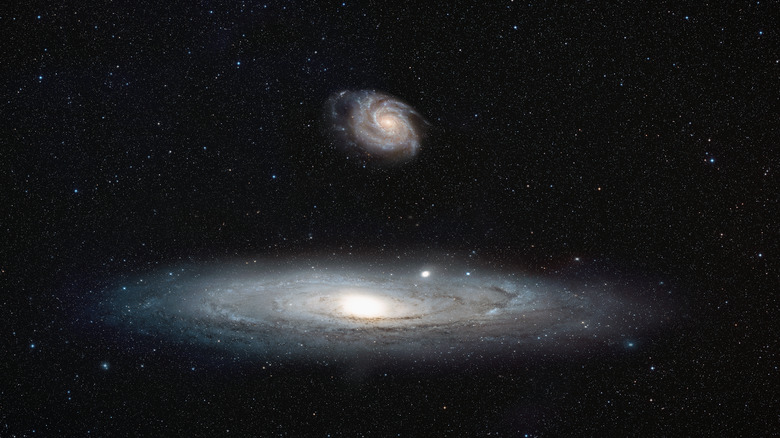How Hard Is It For A Star To Escape A Galaxy?
Stars are some of the largest non-black hole objects in the known universe. In addition to being 109 times the size of Earth, our sun constitutes 99.8% of the solar system's total mass, according to NASA. And even it is dwarfed by many known stars, with the largest — UY Scuti — being over 1,700 times its diameter (via Star Facts). It should be no surprise then that it is relatively difficult for a star to be ejected from its galaxy.
Per Far & Wide, a star would need to be propelled at 1,600,000 miles per hour to escape its galaxy's pull. Yet around half of all stars are estimated to be intergalactic, meaning that it is definitely commonplace (via Space.com). In fact, astronomers even witnessed the departure of a star in 2019, when our galaxy's central black hole flung it out into the void (via Forbes). And while we are not close to any supermassive black holes, there are other potential causes that might befall us.
Galaxy mergers easily toss millions of stars into space
In around 4.5 billion years, our galaxy is predicted to collide with the Andromeda galaxy, merging over time to form a single new system. From the perspective of individual stars and planets, this may not be too terrible in terms of collisions, given the massive distances between them (via EarthSky). Nevertheless, this does not mean that dramatic changes aren't to come. The impact of the galactic merge will send all manner of stars, planets, and other objects careening away, and our star may be among those that are thrown out.
Although Andromeda is the most foreseeable cause of rogue stars, other phenomena such as a close-enough supernova or a passing black hole have the potential to create them. Even if the sun remains in place, it is possible that the future flyby of an existing rogue star, Gliese 710, will disrupt orbits in our solar system (via ScienceAlert). Given how dangerous a change in Earth's axis or a large solar storm could be, this may cause permanent damage to life on our planet.

